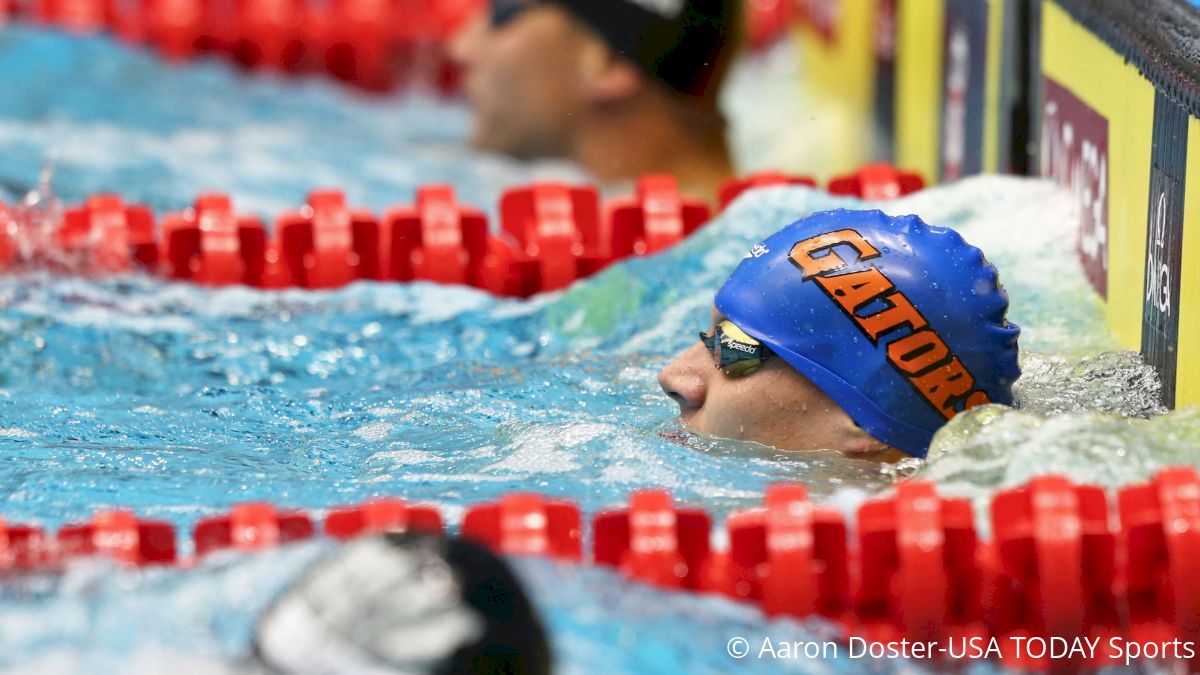Progressive Muscle Relaxation: Calm Yourself In The Moment
Progressive Muscle Relaxation: Calm Yourself In The Moment
Chipper Augusts, coach for Cardinal Aquatics at the University of Louisville in Louisville, KY talks about the benefits of progressive muscle relaxation and how it can aid in swimmer performance by keeping calm before your big race.

Previously, we have discussed how mental imagery and self-talk skills can play a vital role in athletes performing their best when the pressure is on.
Another mental skill that can improve your mind-body awareness, sharpen your focus and attention to the present moment, and give you an on-the-spot calming effect is Progressive Muscle Relaxation. Progressive muscle relaxation (PMR) was developed by Edmund Jacobson in the 1920s, and has since been used by physicians, physical therapists, counselors, psychologists, and coaches for a multitude of reasons. PMR is the act of intentionally tightening and relaxing specific muscle groups.
- Find a dark, quiet, distraction-free environment
- Recline or sit up straight
- Focus on your breathing; the sensations and feelings of each inhale and exhale
- Systematically work your way through your muscle groups, tensing the muscle for about 5 seconds, and then relaxing the muscle for 10+ seconds
- Concentrate on the different sensations of tension versus relaxation
- Time your tension phase with your inhale and your relaxation with your exhale
- Start with your facial muscles and work your way down -- neck, shoulders/chest, each hand/arm, core, glutes, quads, calves, shins, ankles, and feet
- Check out apps like Pacifica and Smiling Mind
- Mind and body awareness
- Ability to direct focus and maintain attention
- Stop racing-thoughts
- Overall sense of relaxation (can aid in inducing sleep)
- Enhanced rest and recovery
- Reduction and regulation of anxiety and stress (literally drops cortisol levels)
- Manage and reduce symptoms of headaches and chronic pain
With health benefits well beyond aiding in optimal performance, it’s no surprise that PMR is used by all types of people. But the great thing about it for athletes is that it can help you channel your nerves and bring you back into the moment. A complete PMR session can have a significant calming effect; this can be helpful in the breaks between events but might be too calming immediately before a race. Many athletes use shorter, abbreviated versions of PMR in the moments leading up to their performance to reach their optimal energy level. Take 45 minutes out of your week to develop this skill and see the calming confidence it gives you behind the block.
---
Another mental skill that can improve your mind-body awareness, sharpen your focus and attention to the present moment, and give you an on-the-spot calming effect is Progressive Muscle Relaxation. Progressive muscle relaxation (PMR) was developed by Edmund Jacobson in the 1920s, and has since been used by physicians, physical therapists, counselors, psychologists, and coaches for a multitude of reasons. PMR is the act of intentionally tightening and relaxing specific muscle groups.
How to improve your PMR skills
- Practice it 3-4 times a week, for about 10-15 minutes a day- Find a dark, quiet, distraction-free environment
- Recline or sit up straight
- Focus on your breathing; the sensations and feelings of each inhale and exhale
- Systematically work your way through your muscle groups, tensing the muscle for about 5 seconds, and then relaxing the muscle for 10+ seconds
- Concentrate on the different sensations of tension versus relaxation
- Time your tension phase with your inhale and your relaxation with your exhale
- Start with your facial muscles and work your way down -- neck, shoulders/chest, each hand/arm, core, glutes, quads, calves, shins, ankles, and feet
Need help?
- Search YouTube for guided PMR- Check out apps like Pacifica and Smiling Mind
Some of PMR’s benefits include
- Regulation of muscle tension/relaxation- Mind and body awareness
- Ability to direct focus and maintain attention
- Stop racing-thoughts
- Overall sense of relaxation (can aid in inducing sleep)
- Enhanced rest and recovery
- Reduction and regulation of anxiety and stress (literally drops cortisol levels)
- Manage and reduce symptoms of headaches and chronic pain
With health benefits well beyond aiding in optimal performance, it’s no surprise that PMR is used by all types of people. But the great thing about it for athletes is that it can help you channel your nerves and bring you back into the moment. A complete PMR session can have a significant calming effect; this can be helpful in the breaks between events but might be too calming immediately before a race. Many athletes use shorter, abbreviated versions of PMR in the moments leading up to their performance to reach their optimal energy level. Take 45 minutes out of your week to develop this skill and see the calming confidence it gives you behind the block.
---